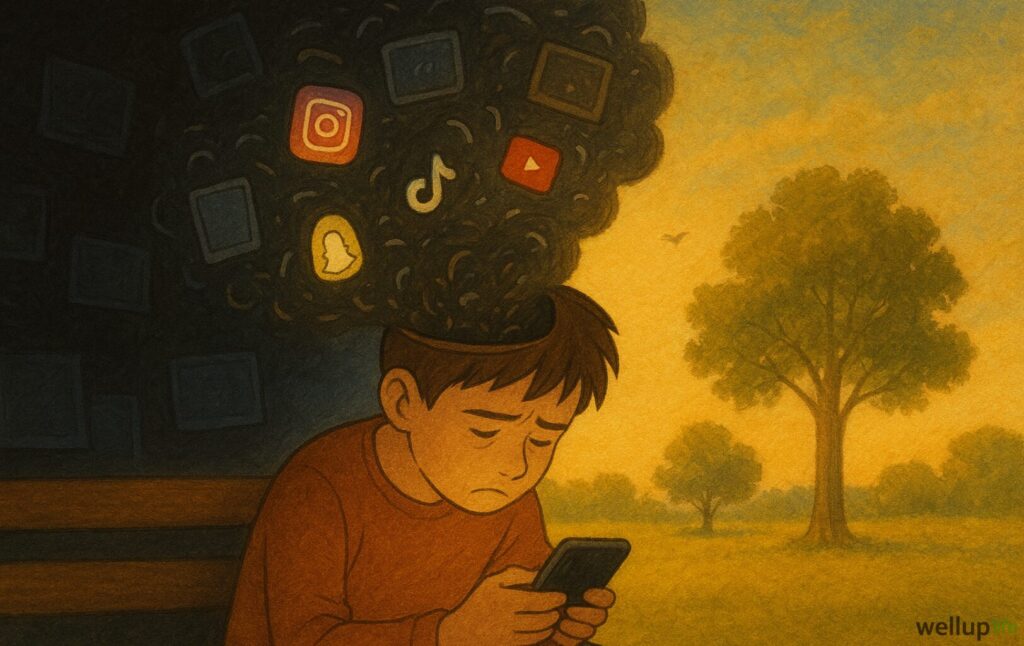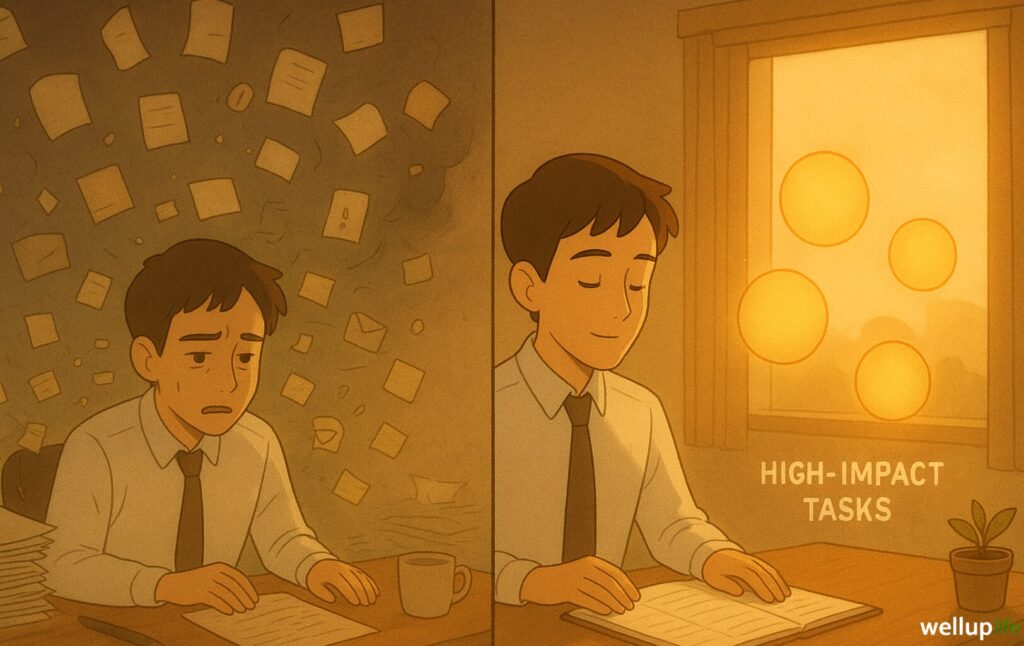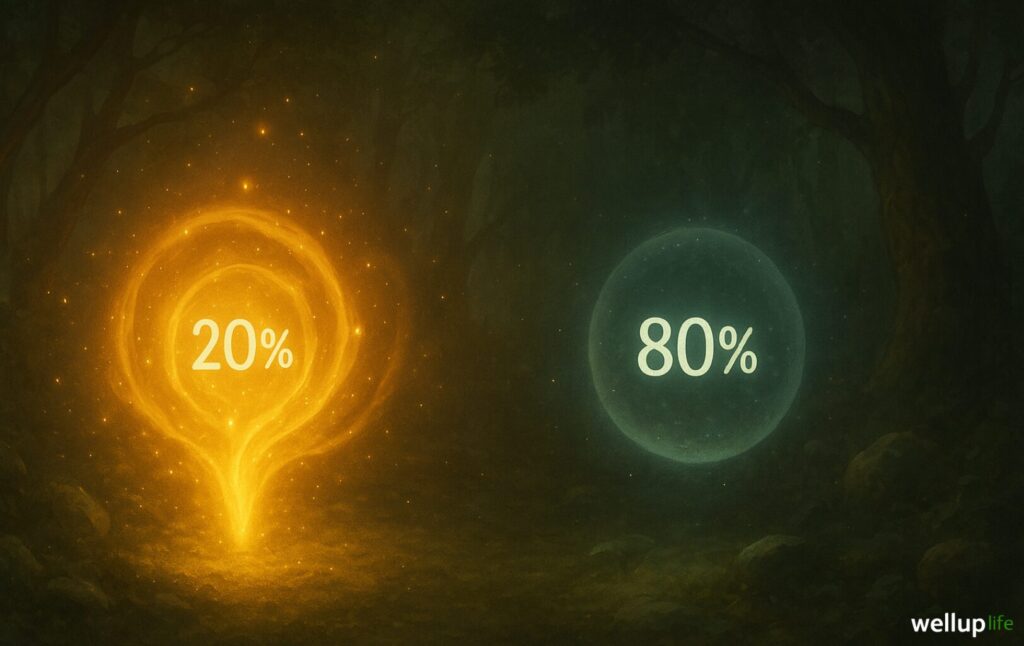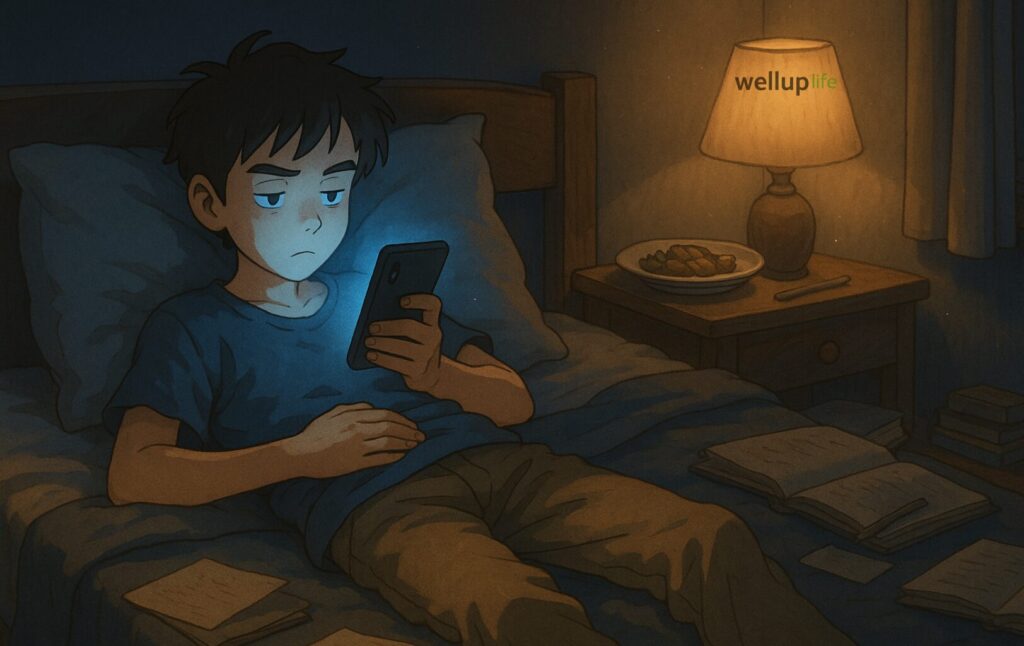Physical Address
304 North Cardinal St.
Dorchester Center, MA 02124
Written By:

Published On: August 24, 2025
Last Updated On: September 6, 2025
Medically Reviewed By:


In today’s fast-moving world, most of us spend hours glued to our phones, laptops, or television screens. While technology keeps us connected, it also silently affects our mental health. Constant notifications, endless scrolling, and late-night screen time often lead to stress, anxiety, poor sleep, and even depression. This is where the idea of a digital detox comes in.
A digital detox simply means taking a break from digital devices—whether it’s for a few hours, a weekend, or longer. Research shows that stepping away from screens can improve mood, reduce anxiety, and even help fight symptoms of depression [1]Impacts of digital social media detox for mental health. It’s not about rejecting technology forever, but about finding a healthy balance between the digital world and real life.
In this article, we’ll explore the impact of digital detox on mental health, backed by science. You’ll learn how unplugging helps with stress reduction, sleep quality, focus, productivity, and overall well-being. We’ll also look at who benefits most from digital detox and share practical tips to get started.
A digital detox means taking a conscious break from digital devices like smartphones, laptops, and social media platforms. Unlike a complete disconnection, it doesn’t mean giving up technology forever. Instead, it’s about using technology mindfully and setting limits so it doesn’t harm your mental health.
The average person spends over 6–7 hours a day on digital devices, much of it on social media and entertainment [2]Global Digital Report 2024. Too much screen time has been linked to stress, anxiety, poor concentration, and sleep problems [3]Digital Detox and Mental Well-Being. This is why digital detox is becoming more important than ever.
There are different forms of detox:
Studies suggest that reducing screen time through these practices helps lower stress levels, improve emotional well-being, and enhance mental clarity [4]Frontiers in Human Dynamics – Digital Detox Cognitive Benefits.
In short, digital detox matters because it gives our minds the rest they need in a world where constant digital noise has become the new normal.
Digital detox is not just a lifestyle trend—it is backed by science. Researchers have studied how reducing screen time and limiting social media use can have a positive effect on mental health, stress, and overall well-being.
A recent meta-analysis found that digital detox interventions significantly reduced depression symptoms. The study reported measurable improvements, with participants experiencing lower negative moods and better emotional balance after limiting device use [5]Effectiveness of Digital Detox on Depression.
Constant notifications and the pressure to stay online often trigger stress and anxiety. Research shows that even short-term digital detox periods—such as screen-free weekends—help reduce stress hormones and promote relaxation [6]Digital Detox Mental Health Benefits.
Too much digital consumption can overload the brain, leading to poor focus and reduced attention span. A study published in Frontiers in Human Dynamics found that digital detox improves cognitive performance, attention, and memory retention [7]Frontiers – Digital Detox Cognitive Benefits. This means that taking breaks from screens can help your brain process information more effectively.
Blue light from phones and laptops disrupts melatonin production, the hormone that regulates sleep. Screen-free time, especially before bed, improves sleep quality and overall mental well-being [8]Digital Detox for Better Sleep Quality.
In short, the science behind digital detox shows clear evidence: it reduces depression, stress, and anxiety, while improving focus, mood, and sleep quality.
Taking a break from screens can do more than just free up time—it can deeply transform your mental health. From lowering stress to improving sleep, here’s how a digital detox benefits mental well-being in meaningful ways.
One of the biggest mental health benefits of a digital detox is a noticeable reduction in stress and anxiety. Our brains are not designed to process the constant flow of notifications, emails, and messages. This digital overload puts us in a state of “always on,” which keeps stress hormones like cortisol elevated.
A digital detox interrupts this cycle and allows the nervous system to reset. Studies have shown that people who consciously unplug from devices, even for a short time, report calmer moods and less anxiety [9]Digital Detox Stress Reduction. By creating digital-free hours or weekends, you give yourself permission to slow down and restore mental balance.
Sleep problems are one of the most common consequences of excessive screen time. Blue light emitted from phones and laptops suppresses melatonin, the hormone responsible for regulating sleep. As a result, many people struggle with insomnia, poor-quality rest, or difficulty falling asleep.
A digital detox, especially during evenings, helps reset the body’s natural sleep rhythm. Research highlights that people who reduce screen time before bed experience better sleep quality, more restful nights, and improved overall mood [10]Digital Detox and Sleep Health. A healthier sleep pattern, in turn, reduces fatigue and supports stronger mental health.
There is a growing body of evidence linking excessive digital consumption with higher rates of depression and low mood. Social media in particular often fuels comparison, loneliness, and low self-esteem.
Taking a break from these platforms has been found to significantly reduce depressive symptoms. In fact, a systematic review of digital detox programs revealed that participants experienced measurable improvements in mood and emotional well-being after limiting screen exposure. By reducing dependency on online validation and constant digital noise, a digital detox creates space for real-world interactions and healthier emotional stability.
Our brains need periods of deep concentration to function at their best. However, multitasking between apps, emails, and social media creates a fragmented attention span. A digital detox helps restore the brain’s ability to focus deeply and work productively. Research suggests that taking screen breaks can improve memory retention, creativity, and cognitive function [11]Frontiers – Digital detox as a means to enhance eudaimonic well-being.
Many professionals and students who try short-term detoxes often report that their work feels more meaningful and less rushed. This boost in concentration not only helps productivity but also supports mental clarity and confidence.
Beyond the internal benefits, digital detox also improves the quality of our real-life relationships. Constant phone use often disrupts face-to-face interactions and creates emotional distance. By putting devices aside, people become more present and attentive in conversations, which strengthens bonds with family, friends, and partners.
In addition, disconnecting from screens reduces emotional exhaustion caused by information overload. This creates room for greater self-awareness, mindfulness, and overall emotional well-being. In other words, digital detox is not just about reducing screen time—it’s about creating richer connections and a more balanced life.
So far, we’ve looked at the main benefits of digital detox on mental health—lower stress, better sleep, improved mood, sharper focus, and stronger relationships. Together, these changes support a healthier, calmer, and more fulfilling lifestyle.
While a digital detox can improve mental health and well-being for almost anyone, certain groups of people experience even stronger benefits. How much a digital detox helps often depends on age, lifestyle, and the way technology is used daily.
Young adults are among the heaviest users of smartphones and social media. Studies show that excessive online activity in this group is strongly linked to stress, anxiety, sleep disturbance, and lower academic performance [12]Digital Detox and Students’ Mental Health.
For students, taking short breaks from screens can improve concentration during study hours, reduce exam-related anxiety, and enhance memory retention. Since this group also faces high social pressure from online platforms, a social media detox can significantly improve self-esteem and emotional balance.
For professionals, digital overload often comes from long hours on emails, video calls, and multitasking between apps. This “always connected” work culture is a major cause of burnout and chronic stress.
Research has found that employees who engage in digital detox practices such as screen-free evenings or device-free weekends report greater job satisfaction and lower stress levels [13]Digital Detox and Workplace Stress. By taking intentional breaks from screens, professionals regain work-life balance, recharge mentally, and improve productivity.
Nomophobia—short for “no mobile phone phobia”—is the intense fear of being without a smartphone. This condition is becoming increasingly common, especially among younger generations [14]Times of India – Nomophobia.
For people struggling with this, a digital detox may sound challenging at first, but gradual breaks can reduce dependency on phones, ease anxiety, and restore a sense of control over technology use.
Interestingly, research shows that the effects of a digital detox can vary across age and gender. Younger users often experience stronger improvements in sleep and emotional well-being, while older adults may notice better focus and reduced stress [15]Gender and Age Differences in Digital Detox. Women in particular report higher levels of stress linked to social media overuse, and therefore, they often benefit more from digital detox strategies compared to men [16]Digital Detox Gender Effects.
In short, while everyone can benefit from digital detox, students, working professionals, and individuals struggling with phone addiction or social media overuse often see the most dramatic improvements in their mental health, mood, and focus.
Knowing that a digital detox can improve mental health, reduce stress, and improve sleep quality is important—but putting it into practice is the real challenge. Many people struggle because devices are tied to work, studies, and daily communication. The good news is that you don’t have to quit technology completely. Even small, mindful changes can bring big improvements in well-being.
A good way to start is by introducing small digital-free moments into your daily routine. For example, avoid checking your phone the moment you wake up. Instead, begin the day with stretching, journaling, or a short walk.
This simple habit lowers morning anxiety and sets a calmer tone for the day. Another effective step is turning off unnecessary notifications. Constant pings from apps increase stress and make it difficult to focus. Research shows that disabling non-essential alerts reduces anxiety and improves concentration [17]Digital Detox For Mental Health And Wellbeing.
Creating short breaks during the workday, where you step away from screens to breathe or move around, also refreshes the mind and prevents mental fatigue.
For a deeper reset, try a digital detox weekend. Setting aside one or two days without screens helps you break patterns of compulsive checking and allows your mind to recharge. During this time, focus on offline activities like reading, cooking, or spending time outdoors.
Studies suggest that even a 48-hour break from digital devices significantly reduces stress levels and improves mood [18]Digital Detox and Emotional Health. If completely switching off feels difficult, start with shorter windows, such as keeping evenings screen-free or designating a “device-free Sunday.” Over time, these habits make it easier to enjoy life without constant digital noise.
Not all screen time is harmful—it becomes problematic when it is mindless and excessive. Practicing mindful technology use can make a big difference. This means being aware of why you are using a device and setting clear boundaries.
For instance, using social media for 20 minutes to connect with friends is healthier than endless scrolling with no purpose. Apps that track screen time can also help you stay accountable.
Combining digital detox with mindfulness practices like meditation or breathing exercises enhances the benefits by lowering stress and improving emotional regulation [19]Mindfulness and Digital Detox.
In the end, a successful digital detox is not about rejecting technology altogether—it’s about using it wisely. Whether it’s a few minutes of screen-free time each day, a weekend detox, or learning to use devices more mindfully, these strategies can create lasting improvements in mental health, sleep quality, focus, and emotional well-being.
While the benefits of a digital detox for mental health are clear, many people find it difficult to step away from their devices. Technology is deeply woven into our work, social life, and even relaxation. Understanding these challenges—and knowing how to overcome them—makes the detox process much easier and more sustainable.
One of the biggest obstacles during a digital detox is the fear of missing out, commonly known as FOMO. Social media is designed to keep us hooked with constant updates about friends, trends, and news.
When people unplug, they often feel anxious about being left behind. To manage this, it helps to remind yourself that stepping away does not mean disconnecting from life—it means connecting more deeply with the real world.
Replacing online time with meaningful offline activities, like meeting a friend or reading a self-help book, can ease the discomfort of missing digital updates [20]Digital Detox and Social Media Anxiety.
For professionals and students, devices are often essential for productivity. Emails, online meetings, digital classes, and study tools make it hard to take a complete break. The key here is not to eliminate digital tools but to set clear boundaries.
For instance, professionals can avoid work emails after office hours, while students can schedule study time without multitasking on social media.
Research shows that such structured breaks reduce stress and increase overall efficiency [21]Workplace Digital Detox Benefits.
Another challenge is the addictive nature of smartphones. Many people unconsciously reach for their phone dozens of times a day, even without a real purpose. This behavior is linked to dopamine release, the brain’s “reward chemical.”
Overcoming this requires awareness and gradual change. Start by tracking your screen time and setting small goals, such as reducing social media use by 30 minutes a day. Creating device-free zones—like keeping your phone out of the bedroom—can also help break the habit [22]Nomophobia and Digital Detox.
Sometimes, it’s not personal habits but social expectations that make digital detox hard. Friends, colleagues, or family may expect instant replies, and not responding quickly can cause guilt or misunderstandings. The solution is communication.
Let people know you are taking screen-free time and assure them you’ll respond later. Setting these expectations creates healthier boundaries and reduces the stress of always being available.
In summary, the biggest challenges of digital detox are FOMO, work dependence, device addiction, and social pressures. But with clear boundaries, gradual steps, and mindful habits, these obstacles can be overcome. With practice, digital detox shifts from being a struggle to becoming a rewarding lifestyle choice.
Yes. Research has shown that digital detox programs help reduce depression, anxiety, and stress while improving overall mood and well-being. Even short breaks from screens can lower stress levels and boost emotional health.
There is no fixed rule. For beginners, even one to two hours a day of screen-free time can make a difference. Many people try weekend detoxes or device-free evenings. Longer breaks, such as a week or more, may bring deeper benefits, but consistency matters more than duration.
Yes. Studies suggest that reducing screen time, especially on social media, can significantly decrease depressive symptoms. One review showed participants who took part in digital detoxes experienced measurable improvements in mood and lower levels of depression.
The best way is to start small. Turn off non-essential notifications, avoid screens before bedtime, and schedule short device-free breaks during the day. Over time, you can try longer detox periods, such as digital detox weekends or device-free holidays. Mindful use of technology is more effective than sudden disconnection.
Absolutely. Students often benefit from better focus, memory, and lower exam stress, while professionals experience less burnout and more work-life balance.
For both groups, creating structured screen-free times during the day improves productivity and supports mental health.
In today’s hyper-connected world, digital detox is not a luxury—it is a necessity for mental health. By unplugging intentionally, you give your mind the space to rest, reset, and grow stronger.
Read Next: Digital Detox Weekend: How I Did It and What Changed
Stoic Thinker
Nitin Yadav, Editorial Director and Review Board Member at Wellup Life, is a Stoic thinker who inspires personal growth through resilience, discipline, and clarity.

Reviewed By:


Reviewed By:


Reviewed By:


Reviewed By:


Reviewed By:


Medically Reviewed By:


Reviewed By:


Medically Reviewed By:

Wellup Life is your space for personal growth, wellness, and mindful living. From self-improvement and productivity to spirituality and relationships, we share practical insights and timeless wisdom to help you live with clarity, balance, and purpose.
Copyright © 2024 – Wellup Life — All rights reserved
